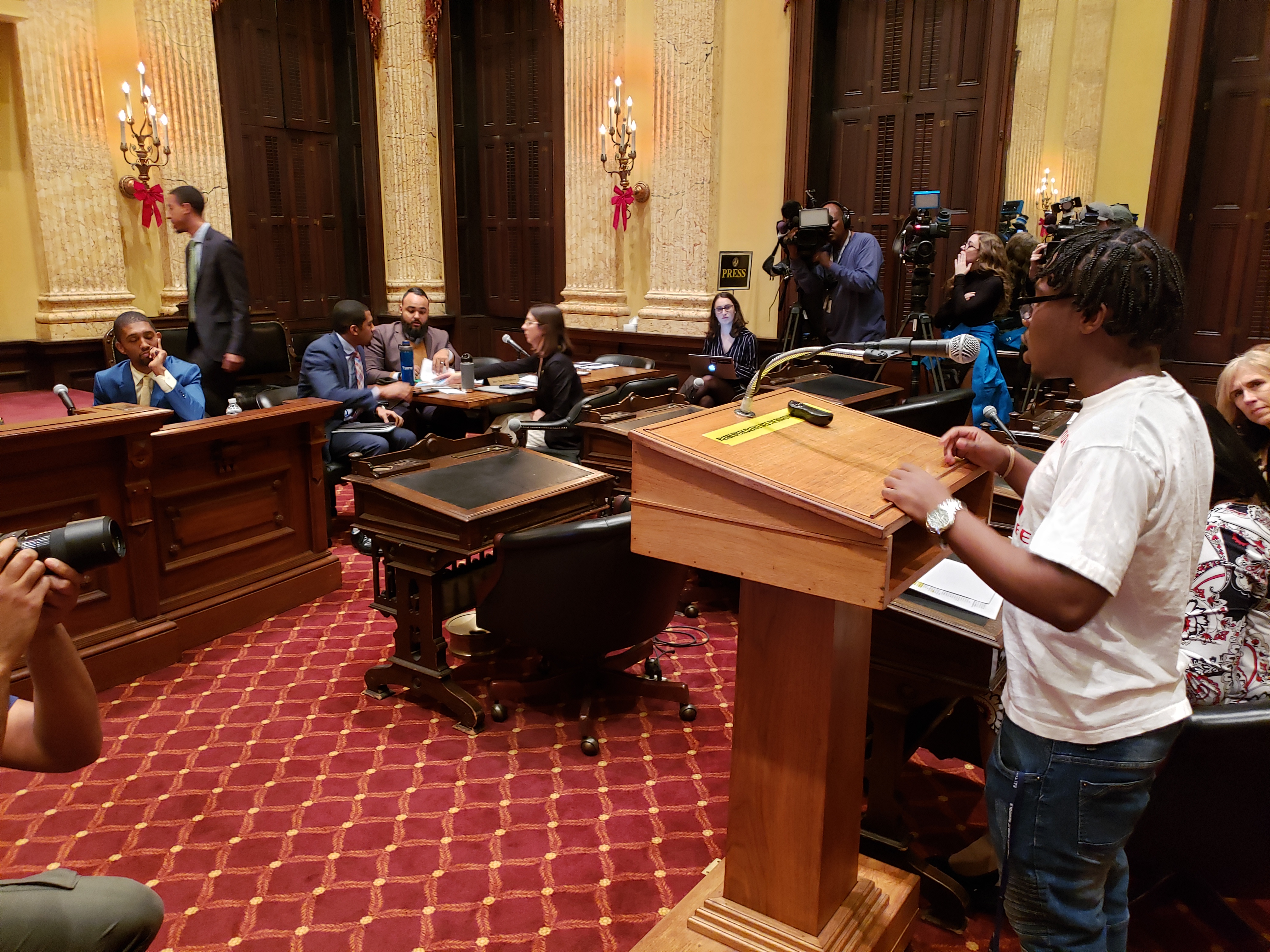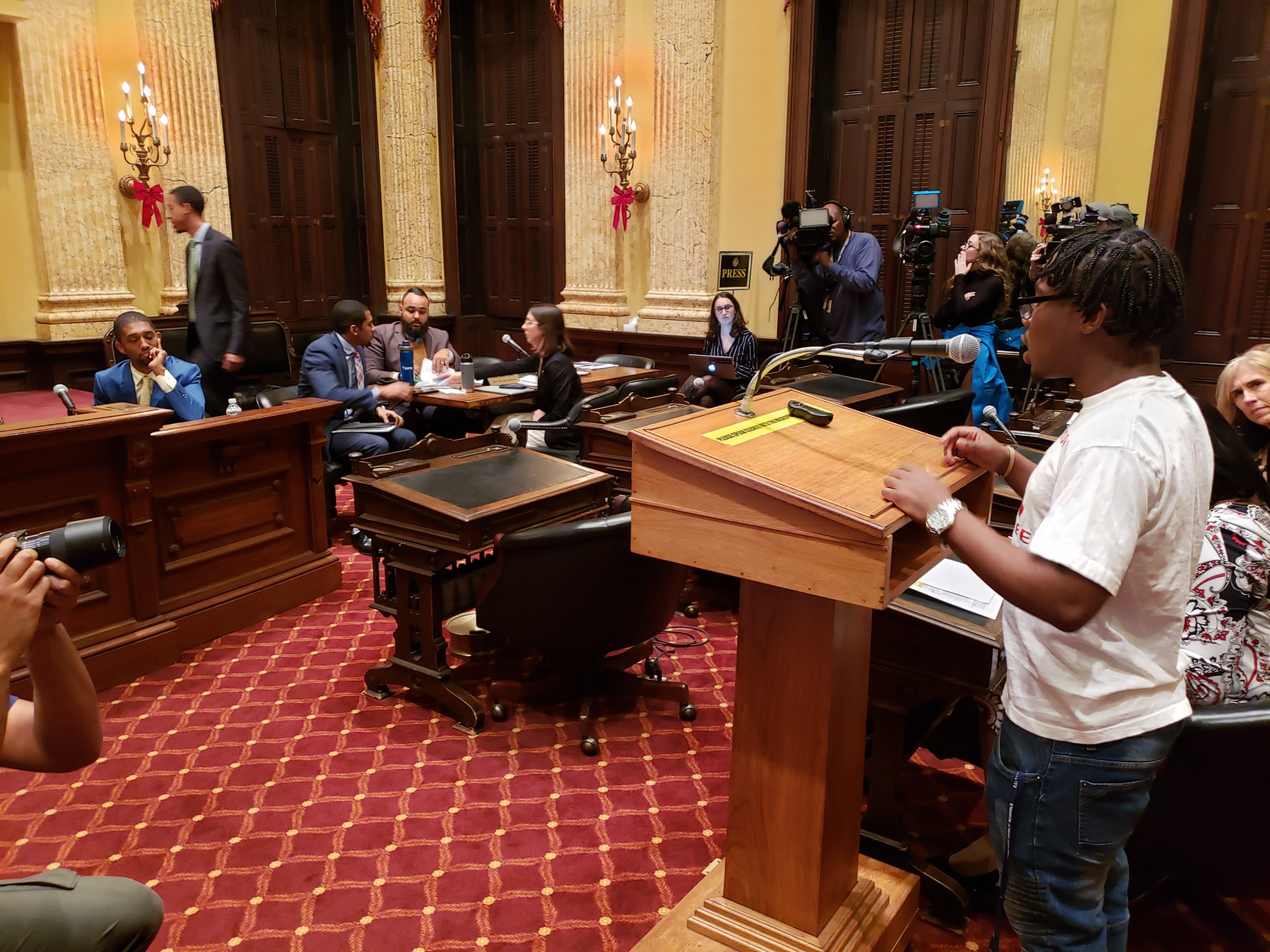[ad_1]

By J. K. Schmid
Special to AFRO
Baltimore City Council President Brandon Scott and City Councilman Zeke Cohen hosted a hearing on the city’s response to the Kirwan Commission Report on Dec. 3.
The commission, named for William English “Brit” Kirwan, Chancellor Emeritus for the University System of Maryland, proposes $4 billion in additional funding to schools statewide.
The proposal has yet to be funded by the Maryland legislature, and the funding has yet to be signed into law by Gov. Larry Hogan, yet, Baltimore’s City Council is taking a few tentative steps forward.
The Kirwan proposal demands funding at all levels of state government, including Baltimore City.

The informal hearing, titled “Kirwan Commission: Baltimore’s Commitment to Education Funding,” brought government, experts and students together to offer testimony on what could be funded to honor Kirwan and what additional funding could mean.
Overall, the hearing was long on dedication but short on commitment. The scope of the city’s Budget Director, Robert Cenname’s, budget workarounds centered on what funds already on hand could be reallocated to City Schools.
City Council is asking each city department to find five percent in its budget to dedicate to city schools.
Cohen spoke of “a need to strategically invest in schools,” during his opening remarks. “Fundamentally, this hearing is about a long overdue moment of truth for Baltimore. While there is plenty of blame to be thrown around in other directions, we all need to take responsibility and get our own house in order.”
No new taxes were proposed by the city council.
“This is a financial issue, but more importantly, this is a moral issue,” Cohen said. “We want to decrease the criminalization of our kids. It would behoove us to never send them to schools with low expectations.”
Student testimony highlighted the contradiction in the city’s priorities of education and law enforcement.
“Baltimore givess about $500 million to policing and less than $300 million to education,” Ivan Roberts, of the Baltimore Algebra Project, said. “There’s a big gap between those numbers, and that shows what our city’s priorities are.”
“I think that we’ve looked at education more as a token that should be given to some and not all,” another student said during community testimonials. “When you look at histories of disenfranchised areas, you also see impoverished schools. There’s no reason why the people of Baltimore should have children in the City of Baltimore that don’t have premier schools. This sends a clear message that our students aren’t valued. And this is all about where we are placing our values, how we value our schools, and when you don’t provide someone with the right environment to facilitate a proper form of education, it tells something about values.”
Dr. Sonja Santelises, CEO of Baltimore City Public Schools, saw promise in the marginal adjustments the city is proposing, something that may reallocate $2.4 million to each school.
“It would mean that more of our middle grades could be able to field actual middle school-level sports and be expanded,” Santelises said. “Right now, a lot of our high schools have to hold their breath to see whether they can field a full band at the high school level. So, that means additional instrumental music for kids.”
Santelises said that these modest measures would also allow for mental health support for students, Including group therapy and one-on-one sessions with a psychologist.
“I am old school: I believe that adults are responsible for setting the conditions for a generation of young people,” Santelises continued. “That’s what $2.4 million dollars buys.”
[ad_2]
Source link

